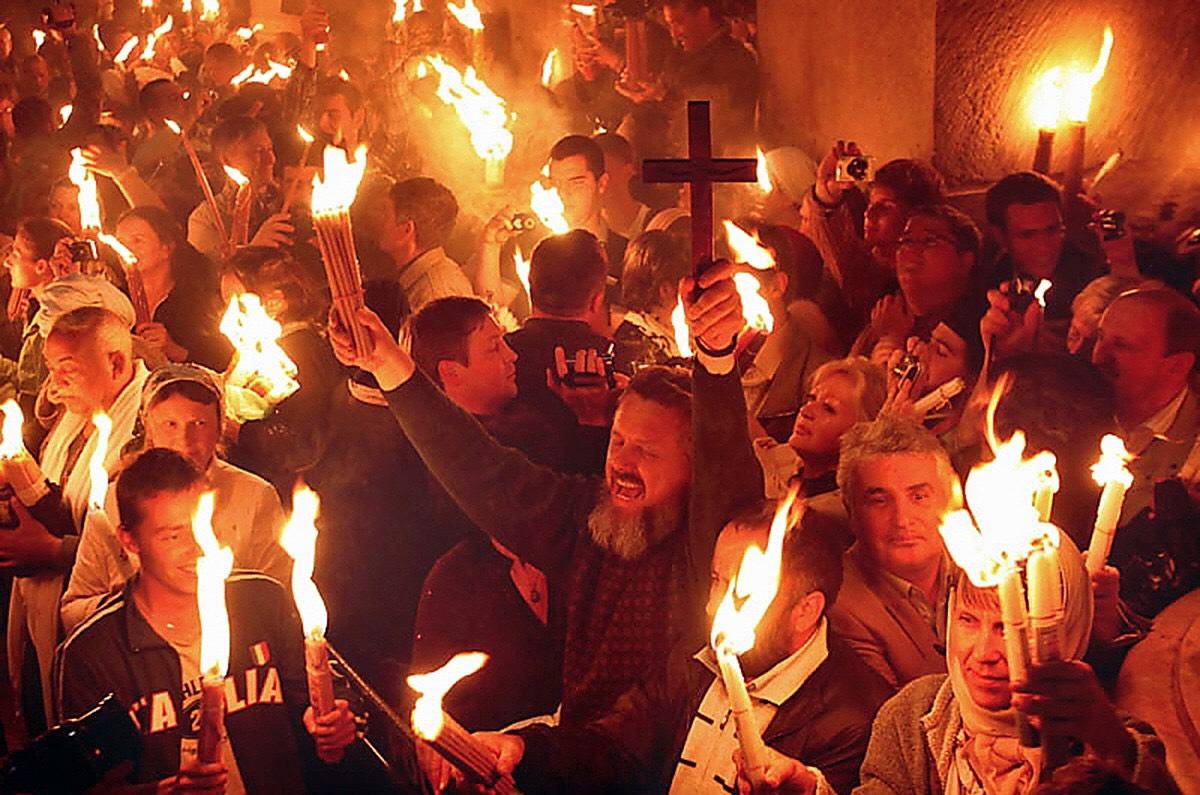
What's So Great About Pascha?
2017-04-15
I was asked this week by someone to expound on my comment, “I’m a huge fan of the Lenten and Paschal season in the East. Nothing ever done compares to Pascha (Orthodox Easter).” I was asked what Pascha is like for me, a question that I’ve been asked several times and really enjoy answering.
Really, my love of this season starts with the beginning of Great Lent. In the Christian East, we begin the Lenten Season on the Sunday of Forgiveness. That night, we all come to the parish for Vespers (evening prayers). In the end, we stand before each person and ask forgiveness and prostrate before him/her. Our priest and deacons ask each parishioner for forgiveness and, when a bishop is present, he does the same. Then we embrace one another, confirming our forgiveness and God’s forgiveness. It’s profoundly moving and a reminder that we’re all in this salvific journey together. This year I felt tears coming on during the service as I thought on the meaning and power of forgiveness and what it meant for my fellow parishioners to embrace me.
When I leave and the doors to the church close behind me, I am mystically participating in the beginning of the history of salvation. We become, for the next 40 days of Lent and Holy Week, like Adam and Eve and remember the time when the gates to Eden closed to humanity. Throughout Lent, our readings are only from the Old Testament, except Sundays which are little Paschas. We read the history of humanity and God’s love in Genesis, God’s call to forgiveness and reconciliation in Isiah, and who we should live our lives in Proverbs. Each Sunday of Great Lent encourages us in our faith and reminds us of what we’re striving for in this life.
The comes Lazarus Saturday and Palm Sunday, which you can read more about in this article I wrote. Starting the night of Palm Sunday, we have three nights of Bridegroom Services. These are intimate Orthros or Matins services which remind us to be like the wise virgins who kept their oil ready for the Bridegroom (). We are to ever be vigilant and watchful for Christ. We recall the cursing of the fig tree, the ten virgins, and the woman who anointed Christ before His passion. If you haven’t heard it, I recommend listening to the hymn from the services sung by Fr. Apostolos Hill.
Then we, through divine mystery, participate in the final days of Christ’s life, from the washing of the feet of the disciples to the Last Supper, through His betrayal, arrest, and crucifixion. During the crucifixion, our priest actually nails the icon of Christ to the cross, which is, to say the least, very emotional. We then take Christ off the cross, wraps Him in a linen burial shroud, and place Him in a tomb, which is empty on Saturday morning.
Okay, all of that to pave the way to Pascha. The Pascha service starts late on Holy Saturday evening. When we enter the parish, everything is dark; there are no lights. Throughout Lent, everything had been dimmed, but tonight, there is no light in the parish. Our priest comes out through the holy doors holding the Paschal candle and proclaims, “Come ye, take light from the Light that is never overtaken by night” and lights everyone’s candles. At this point, the parish is illumined only by the candles of the parishioners. We all process out of the church through the back and make our way to the front door. When we get there, Father reads from the Gospel (St. Mark 16:1-8). Next, he bangs on the front doors and exclaims, “Lift up your gates, O ye princes! And be lifted up, O ye everlasting gates, and the King of glory shall enter in”. Someone responds from inside, “Who is the King of Glory?”, to which Father responds, “The Lord, strong and mighty; the Lord, mighty in war” (Psalms 24:7-8).
At that point, the doors are thrown open, and we all enter the church. Everything is white, all of the candles, altar cloths, clergy vestments, everything, and every light is on, and every candle lit. We triumphantly and joyously sing “Christ is risen from the dead, trampling down death by death, and upon those in the tombs, bestowing life.” We continue with liturgy and Father blesses the baskets which we have brought full of goodies we’ve been fasting from to share in the fellowship hall. We all go downstairs and celebrate together at 1:30 in the morning, greeting one another as we will for the next 40 days by saying, “Christ is risen!” in many languages.
Within Orthodoxy, these historical events come to life for us in a very real way. We don’t see this as “reenacting,” but instead we participate in these historical events in a genuine mystery. We experience Christ’s crucifixion and resurrection each week during the Divine Liturgy which culminates in us receiving the body and blood of Christ, as He instructed.
For this reason, the inexplicable experiencing the life, death, and resurrection of Christ that I say, Great Lent, Holy Week, and Pascha in the Eastern Christian tradition is my favorite liturgical time of the year.